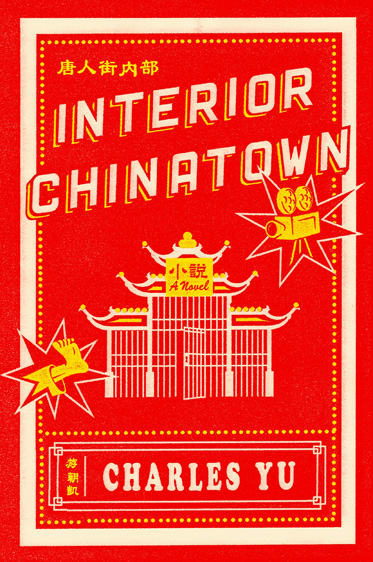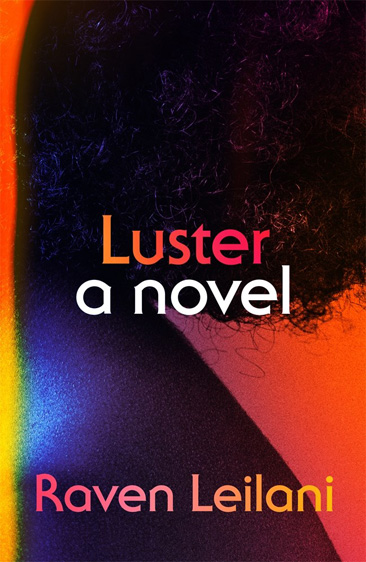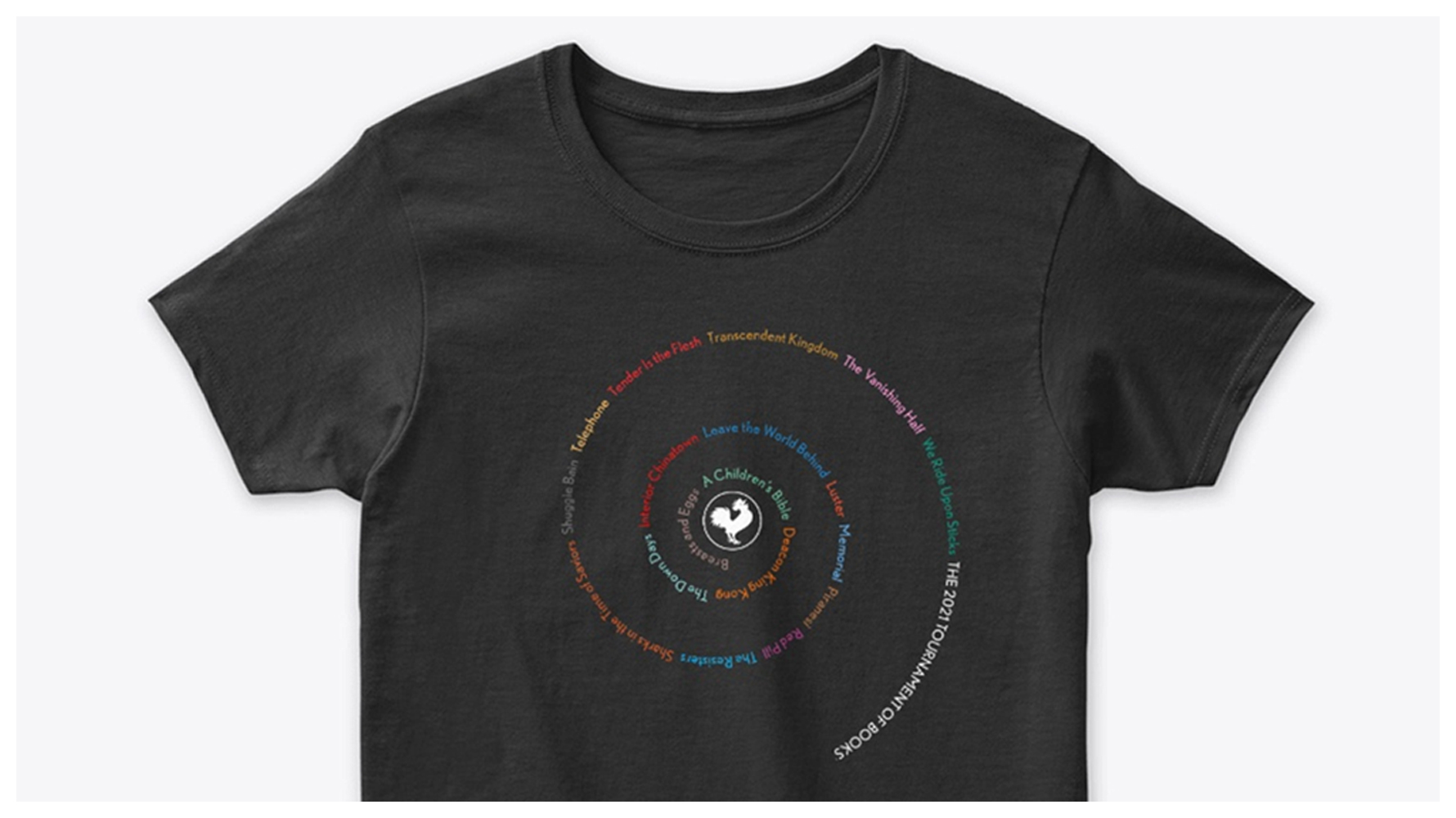-
March 12, 2021
Opening Round
-
Charles Yu
2Interior Chinatown
v.
3LusterRaven Leilani
-
Judged by
Nishant Batsha
The moment I picked up Charles Yu’s Interior Chinatown, I couldn’t stop thinking about Luigi Pirandello’s classic play, Six Characters in Search of an Author. “[O]ne is born to life in many ways and in many forms,” Pirandello writes. “As a tree, or as a stone, as water, as a butterfly … or as a human. And one can also be born as a character.”
Interior Chinatown’s protagonist, Willis Wu, seems to always-already be inhabiting his character as Generic Asian Man on a buddy-cop show called Black and White. As if keeping pace with Netflix’s autoplay, the show never stops filming in the Golden Palace Restaurant below his Chinatown SRO. The book renders the world of this SRO with rich attention to detail, describing for example how a broken shower pan on the ninth-floor bathroom means that those on the eighth floor live in the shadow of a simple dictum: “Water hates poor people.”
The book, told in the second person, takes form to the extreme: It is structured as a screenplay, divided into scenes and acts, with dialogue and scene rendered as it would be for the big screen. It even goes as far as to use the Courier font throughout (“an industry standard for screenplays,” the book’s font note reminds the reader).
Wu is the son of Ming-Chen Wu, who studied kung fu and eventually got good work as the character Sifu, but to the family’s dismay. “Everything has changed, nothing has changed… your father is no longer a person, no longer a human. Just some mystical Eastern force… this is how he became Sifu. This is how you lost your dad.” Willis’s mother, Dorothy, was once Young Beautiful Oriental Woman, but eventually became Old Asian Woman. And even though Willis’s life goal is to become Kung Fu Guy, it’s his mother who tells him, “Don’t be Kung Fu Guy… Be more.”
In his scene notes, Pirandello wrote that the characters in his play were not to seem unreal, but instead as “created reality, the creations of immutable fantasy; therefore, more real and substantial.” As Interior Chinatown weaves its way through the intersections between staged life and life as a stage—even going through a rushed trial and love story in the book’s final third—the reader eventually comes to see Wu’s life and goals as bit parts in the American conception of race. It is through Interior Chinatown’s satire that the feeble and hollow forms of representation in the media are revealed to be the sad jokes in which we all live.
* * *
Raven Leilani’s Luster begins with an affair with an older man, one laced with “the potent drug of a keen power balance. Of being caught in the excruciating limbo between their disinterest and expertise.” But the whole genre is turned on its head: The affair is deconstructed when the narrator is invited into the man’s home—by his wife.
Luster is narrated in the first-person present by Edie, a Black 23-year-old editorial assistant stuck in one dead-end job after another, seeking to skirt the crushing banality of the office through hollow sexual liaisons (most often with her coworkers). She ends up in a relationship with Eric, an older white man in an open marriage. She’s brought into his home by his wife, Rebecca (described as being a woman of “chunky, tragic sneakers and freaky competence”), where she also enters an uneasy, quasi-mentorship relationship with their Black foster child, Akila.
There’s a full range of Note Books and related stationery products at fieldnotesbrand.com. Field Notes is proud to once again be a sponsor of the Tournament of Books.
Edie’s life seems to revolve around disaffection and dysfunction. Everything seems full of possibility and yet nothing can go right: she’s broke, living in a mouse-infested Bushwick apartment, vacillating between mild depression and, after she loses her job, the hustle of the gig economy. She’s still coming into herself, and much of the book is dedicated to her introspection and analysis of her life. The book truly shines, however, when Edie is able to bring her life and experience into scathing critiques of race and class.
The sex in the book flirts with sadomasochism that often spills into overt violence. After Eric admits that he wants to hit Edie (and follows through on it), she places a hand on her cheek “almost out of expectation that the pain be concentrated here, but in a way, it is everywhere.” I was immediately brought back to the writing of Gayl Jones—“hurt me tenderly,” Ursula said in Corregidora—and the ways in which Black desire and pain live together.
But beyond the bleak assessments of race, class, sex, and gender, there lay the creative possibilities of desire. Much like Chris Kraus wrote in I Love Dick that “love and sex both cause mutation, just like I think desire isn’t lack, it’s surplus energy—a claustrophobia inside your skin,” Edie is able to return to becoming an artist through her desires: for Eric, for the stability of suburban New Jersey, for the aloof presence of Rebecca.
The book offers a breathtaking look into the relationships between people at a certain moment in a life, and the way in which the messy world of sex and striving for something new ultimately opens up a possibility (however small) of a mutation within a life.
* * *
I had to make a decision. I railed against this—both were fantastic novels that deserve the highest praise. (And who was I to decide?) I flipped a coin and yelled at the coin for giving me the wrong answer. I went back and forth a hundred times.
Neither book was perfect. The final third of Interior Chinatown felt like it rushed itself through the love story and trial (that doubled as a lesson on the history and status of Asian Americans in the United States). I had loved how the book took its time and meandered through the Black and white world in which Generic Asian Man was finding his place, and felt like I wanted more as the book reached its close.
On the other hand, while my reading of Luster centered on the book’s exploration of the ways in which the violence that can lace imbalanced sexual and personal encounters can lead to the rediscovery of a creative energy, I was somewhat disappointed in the ways in which this exploration suffocated the plotline between Rebecca and Edie. As they grew more and more entangled—Edie’s painting of Rebecca’s work at the VA; Rebecca inviting Edie to a metal concert—it felt like there were so many possibilities to explore between the two. Ultimately, sexual desire was reserved for Eric, a character that I felt by the end of the book did not seem to deserve Edie’s attention. I desperately wanted the book to give Edie and Rebecca their due, to explore all the possibilities between them. Instead, the book settled—somewhat unsatisfactorily—upon sublimating those possibilities into another instantiation of Edie making art.
On The Daily Show, Charles Yu was asked by Trevor Noah why he had used the form of a screenplay for the book. Yu made a deadpan joke: “I work in Hollywood, so I already had the software. It was easier.” And yet, there’s something to be said about using different tools to make something familiar anew. It allows us to see clearly what was once occluded. In the case of Interior Chinatown, it makes visible ideas of minority representation that may not break new theoretical ground, rendered in a way I had never before seen.
One of the downsides of reading as a writer is that every book becomes an object lesson. I never consciously set out to be drawn in by books that teach me something about craft, but it is this—and not character, plot, or voice—that often leads me to feel most satisfied at the close of a novel, as if reading is the closest I’ll ever get to learning as an eternal return. When Interior Chinatown took a novel and spun it into a robe of a metafictional screenplay, I saw a book that taught me how to strive for something new in my own writing. In this case, I felt that above all else had to be rewarded.
Match Commentary
By Kevin Guilfoile & John Warner
John Warner: I am dating myself here, but do you remember that honey badger video, where it’s a guy doing voiceover to a nature video of a honey badger doing its thing—eating anything it can get its jaws onto, basically—and he keeps saying, “Honey badger don’t give a shit?”
For me, Luster is what I think of as a “honey badger novel,” because it doesn’t give a shit in the best possible way. I’m not a fan of “brave” as a descriptor of a book, so I prefer the word “free,” in that the text reads like the author didn’t follow anything other than her own artistic impulses in terms of story, language, character, you name it.
The result, for my money, is some pretty electrifying reading. The comparison by Judge Batsha to I Love Dick is spot on, and I think illustrates something that is perhaps underappreciated, which is how funny the book is. It’s not a comedy, but Luster gave me as many laughs as any book in recent memory.
Kevin Guilfoile: Right? It is funny, but then I would almost stop myself from laughing because the narrator also has self-destructive tendencies that take the humor to a darker place and it forces you to sit there reflecting on it all, which is about as good a result as a novel can hope for.
It’s something of an unexpected result. When you start reading it feels like it might be a mostly familiar tale of a young professional in New York who settles into the role of the other woman, and then at some point the women in the story decide, quite rightly, that they are far more interesting characters than the husband/boyfriend, and they make the story entirely about themselves in a way that is a lot more meta and compelling than I expected. I think I read the entire book in two sittings.
John: I’m a big fan of metafictional experiments, and am drawn to them myself as a writer, so when I see that someone of Charles Yu’s reputation is gonna play around, as the kids don’t say anymore, “I’m here for it.”
That said, because of the conceit, it was somewhat hard for me to settle into the story underneath at an emotional level. But as I worked my way along, so too did the novel work its way inside me. Judge Batsha calls the trial and love story “rushed,” and there’s no doubt it feels that way, but for me, that rushing felt organic to Willis—who I see as the narrator author inside the conceit—and how he would tell his life.
Is that giving more credit than is due? Have I decided to overlook a flaw because in the end I was so thoroughly won over?
Kevin: You almost have to come up with a new phrase to describe just how high-concept this novel is, but the conceit so perfectly dovetails with the theme that it transcends any reservations I might have had about it being a gimmick. Of course, the difficulty with high-concept is that it’s difficult to do at length. Like Judge Batsha, I thought the third act didn’t lend itself to the screenplay premise as well as the beginning, but Yu and his readers are all fully committed by then. It’s an extremely minor complaint from me.
At the same time I was reading Interior Chinatown, I was flipping channels late at night and happened on a rerun of the Byron Allen talk show Comics Unleashed. Just as I landed on it, the Korean-American actress and comedian (and Wait Wait… Don’t Tell Me! regular for all us public radio nerds) Helen Hong was telling a story about an audition she once had for a character called Golden Dragon Restaurant Lady. She read her line, then the director or whoever asked, “Can you try that again as if English wasn’t your native language?” I’d say it was like a scene from the novel except that it was literally itself a scene, and could have been literally from the novel.
Late in the book, Willis gives a speech in which he asks, in part: “If someone showed you my picture on the street, how would you describe it? You might say, an Asian fellow. Asian dude. Asian man. How many of you would say: that’s an American. What is it about an Asian Man that makes him so hard to assimilate?”
Once in a while a novel says something so obviously true, and says it so well, it is humbling.
John: It feels like we’re only at the very beginning of some profound changes about the voices that are given prominence in the culture, and as a reader drawn to stories that expand my understanding of the world we live in, I’m here for it.
Kevin: John, you and I are back for a third commentary in a row Monday, as Douglas Stuart’s wonderfully shaggy, Scottish coming-of-age novel Shuggie Bain takes on Percival Everett’s sly and creative Telephone, with Rachelle Hampton holding the talking stick.
New 2021 Tournament of Books merch is now available at the TMN Store. As a reminder, Sustaining Members receive 50 percent off everything in our store. To find out why we’re asking for your support and how you can become a Sustaining Member, please visit our Membership page. Thank you.
Welcome to the Commentariat
Population: You
To keep our comments section as inclusive as possible for the book-loving public, please follow the guidelines below. We reserve the right to delete inappropriate or abusive comments, such as ad hominem attacks. We ban users who repeatedly post inappropriate comments.
- Criticize ideas, not people. Divisiveness can be a result of debates over things we truly care about; err on the side of being generous. Let’s talk and debate and gnash our book-chewing teeth with love and respect for the Rooster community, judges, authors, commentators, and commenters alike.
- If you’re uninterested in a line of discussion from an individual user, you can privately block them within Disqus to hide their comments (though they’ll still see your posts).
- While it’s not required, you can use the Disqus <spoiler> tag to hide book details that may spoil the reading experience for others, e.g., “<spoiler>Dumbledore dies.<spoiler>”
- We all feel passionately about fiction, but “you’re an idiot if you loved/hated this book that I hated/loved” isn't an argument—it’s just rude. Take a breath.




